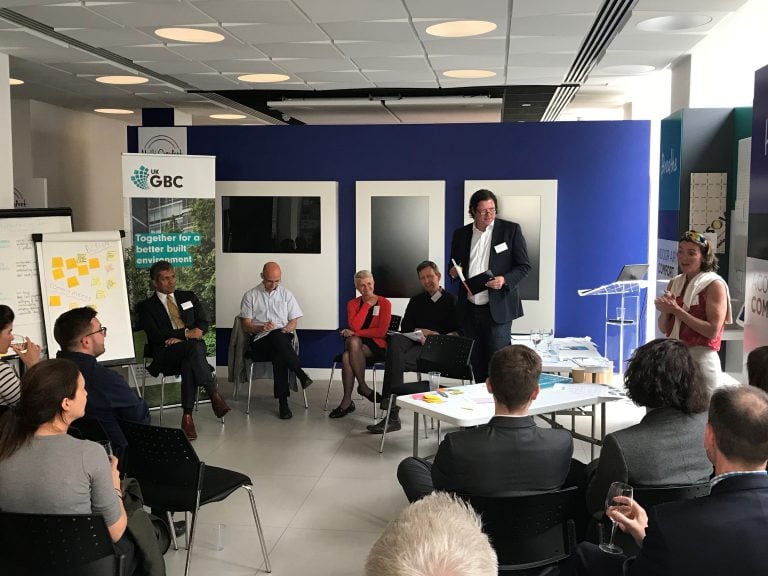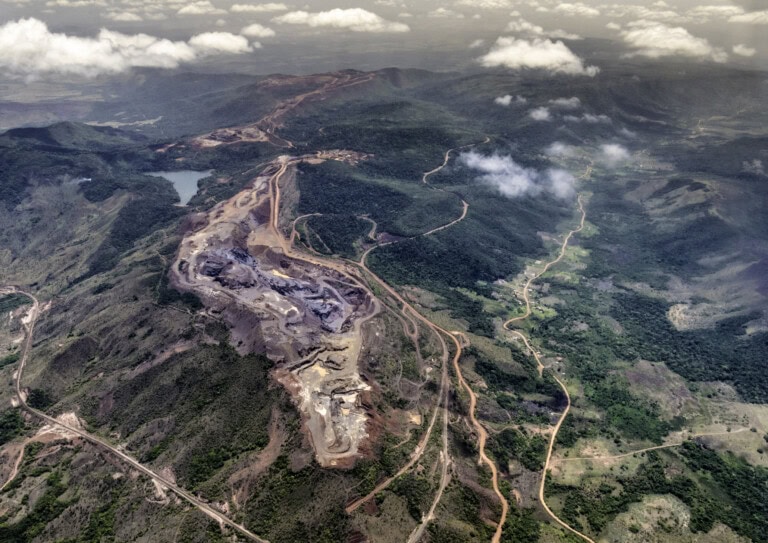Immersion is key to successful sustainability learning: reflections on Second Nature LIVE

Though there were 18 participants who joined us for our three month Second Nature LIVE journey, it felt like everyone who encountered the programme walked away with their minds racing, excited by the possibilities the experience had offered them. This moment was most clearly felt during the final business case delivery for the Birmingham Women’s and Children’s Hospitals from our participants. As NHS Trust members sat on the panel judging, it brought me great joy to witness the visibly positive impression the presentations had on the panel. The fact that a group of non-sustainability professionals from across the built environment triggered such a different way of thinking, and inspired the panel so much, shows how much they developed across the programme.
From the start, the participants formed teams, working with fellow professionals from different organisations and backgrounds. They learnt how to approach and apply sustainability principles to real building dilemmas at the combined facility project of the Birmingham Women’s and Children’s Hospitals. After meeting on site in Birmingham to understand the stakeholder needs and the key constraints and options, they worked virtually for six weeks, participating in weekly webinars where experts brought best practice and knowledge to the virtual table. To round off the wide-reaching programme the teams developed strategic opportunities and presented their compelling business cases of sustainability to the board of the hospital redevelopment project.
The integrated, deep-dive Second Nature LIVE programme acted as a pilot for an exciting new way of sustainability learning for UKGBC, and it surpassed our expectations on several fronts.
The outcome was clearly powerful – the panel, including the NHS Trust members, who indicated the programme achieved what it intended to do – to stimulate a different way of thinking and acted to inspire them to incorporate sustainability at the centre of their redevelopment process. For our participants to deliver such meaningful change while also developing their knowledge of sustainability was an incredible double-win for the programme.
The presentations of the teams in the second nature LIVE programme were varied and rich in content, I was surprised by the depth and breadth of what was covered, and for sure has inspired us in the Birmingham Women’s and Children’s NHS Foundation Trust as we look ahead to the joint facility development
Graham Seager NHS Trust Estates Director
Listed below are the varied and exciting proposal summaries, which we hope can continue the thought provoking discussion that occurred throughout the programme.
The red team proposed involved demolishing existing buildings and building a new one, while engaging community, promoting healthy lifestyles and enhancing contact with nature (through the central garden). The focus was on waste reduction and management, but the realisation that really captured everyone’s imagination was that you don’t have to wait for a new building to be more sustainable. This was captured by the red team call to startnow! The yellow team promoted the use of existing buildings, addressing the lifecycle of the building and based the presentation on the concept of SMART principles and use of technology, investing in mobile consultation. The approach focused on not trying to accommodate all the people in the hospital but to encourage remote care, reducing waiting times and patient congestion in hospitals.
Yesterday, our #SecondNatureLIVE cohort was tasked with presenting #sustainability proposals for @Bham_Childrens & @BWH_NHS.
— UK Green Building Council (@UKGBC) May 17, 2018
The standard was incredible across the board, but a particular congratulations goes to the green team who the panel judged to have the strongest proposal! pic.twitter.com/MxFNKsSad2
The green team (who eventually emerged victorious) favoured investing on-site to develop part of the (new) building into an income for the Trust through linking the site to the surrounding community like the University, and local businesses, or incorporating housing facilities into hospital buildings. The idea to develop a flexible and transportable modular unit that could meet the needs of the hospitals was particularly well received. Finally, the blue team focused on biophilia, incorporating green walls and break out areas. The natural element is especially recuperative for child patients, who could be involved in the planting, and helps increase awareness of healthy lifestyles and wellbeing (both for patients and staff). Like the green team they felt incorporating other facilities for NHS staff, patients, the local community, and businesses was crucial to potentially change the dynamic of the hospital environment. The team also presented the urban building concept on modular and flexible construction type.
As indicated by the participants, they learned an incredible amount.
Being part of Second Nature LIVE has been a great experience bringing different disciplines together into the class room and out on site to apply learning instantly. Having the capstone event to look forward to is a superb way to keep focus on the project and bring the best out of people and encourage collaborative working. I would highly recommend this to anyone looking to gain a wider understanding of sustainability and importantly how to make a case for it.
Matthew Westwood, Mitsubishi Electric.
The businesses who supported the participants gained knowledge to take back into their organisations. It was encouraging to see each participant give a wide range of actions with which they are going to do ‘something differently’ in their day to day work.
The programme trialled a truly experiential approach, and a learning journey for both participants and the NHS Foundation Trust. This included early sensing through a site visit and engagement with stakeholders, followed by bringing fundamental principles and experts to the participants and research facilitation. The programme culminated in testing the ideas with the ‘client’ which brought the learning full circle and ended in a thoughtful and powerful ending which brought together the NHS project leaders, the wider industry representatives, and individuals working on the proposals.
One quote that came out of the process really stuck in my mind.
If you look at history, innovation doesn’t come just from giving people incentives; it comes from creating environments where their ideas can connect!
The closing of the programme was emotional – it has been an incredibly rewarding for all involved, the experts, the ‘client’ the learners the facilitators. Multi-disciplinary collaboration between team members and experts from different walks of life, we all hope the results will be useful to the Birmingham Women’s and Children’s NHS Foundation Trust, and we look forward to seeing how their project, and our participants, continue to evolve.
This programme was part of our immersive Second Nature LIVE sustainability learning programme. If you are interested in our range of learning and development opportunities, take a look at our course and events page.
Related
Navigating the challenges around hard-to-recycle materials

What are the environmental impacts of construction materials? An introduction to Embodied Ecological Impacts

Why is social value so crucial when developing and managing commercial real estate?

Biodiversity Net Gain: Are you ready for the incoming legislation?

